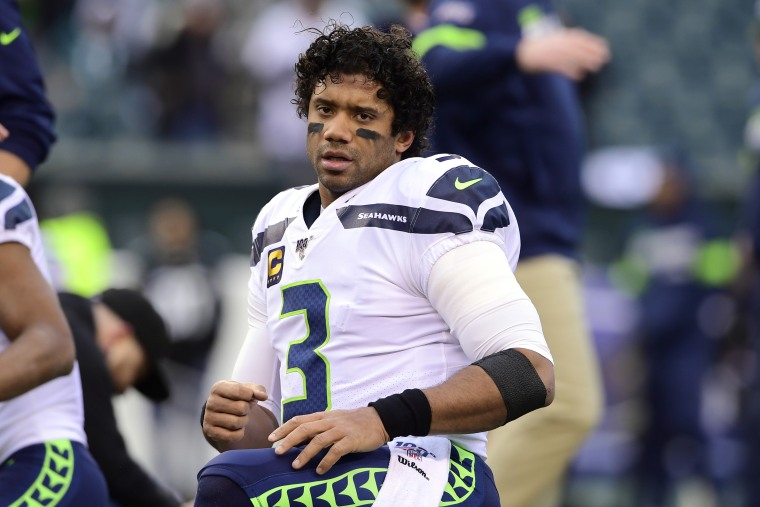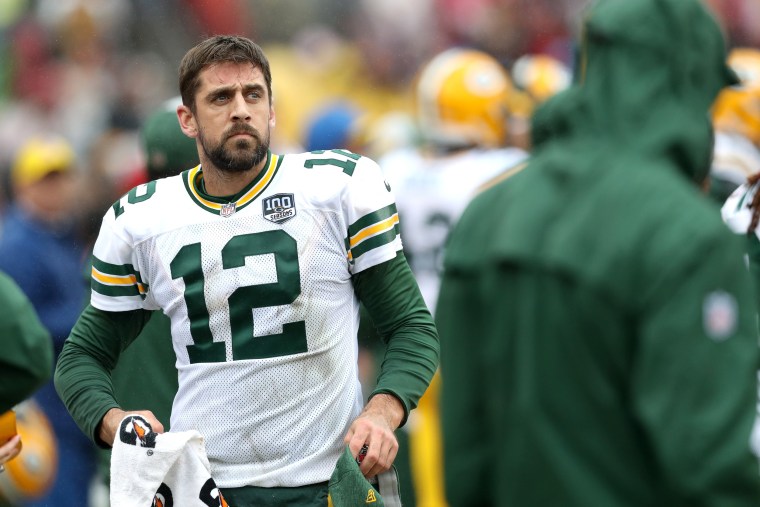He could have been speaking about the political climate when he addressed reporters Thursday in Indianapolis at the NFL's scouting combine, but DeMaurice Smith's blunt assessment referred to the labor negotiations between the NFL owners and players.
"Man, democracy's messy," Smith, the executive director of the NFL players' union, said after high-profile players announced their opposition to a proposed labor deal.
Although the current collective bargaining agreement, or CBA, between the league and the NFL Players Association isn't set to expire until after the 2020 season, the two sides have been negotiating a new 10-year agreement. The owners have already approved the proposal on the table, and it's now up to the roughly 2,000-member union to vote whether to ratify or reject it.
Download the NBC News app for breaking news
But it's not immediately clear that will happen, setting off fears of a battle between players and owners that could mean a work stoppage.
One of the issues is whether to expand the regular season from 16 to 17 games.
"It's a fluid process," an NFL source told NBC News. "There are a lot of discussions. The players are well-equipped to make decisions. The players are engaged. If they vote 'no' now, that doesn't mean they won't eventually get to 'yes.' There's still time."
Yes, there may still be time for the union's membership to change its thinking if the players reject the proposal, but at least one marketing expert said a "no" vote now could mean short- and long-term disaster.
Marc Ganis, president of Sportscorp Ltd., a Chicago-based sports marketing firm, who has consulted for many NFL teams, said one such looming labor headache is a work stoppage. A player lockout in 2011 wiped out the entire offseason before the owners and the players were able to agree upon a new CBA that summer.

"It would be a huge impact if [the players] vote no. Both parties will have to start getting into hardball negotiations, prepare for a work stoppage," Ganis said.
"There's that old saying, 'I have my lawyers, and you have your lawyers, and when we use the lawyers, everything turns to crap,'" he said. "One of the first things that happens [if the CBA proposal is rejected] is that the environment changes, where each side is thinking about who wins instead of what is mutually beneficial for both sides."
Last week, marquee quarterbacks Aaron Rodgers of the Green Bay Packers (one of his team's player representatives) and Russell Wilson of the Seattle Seahawks voiced their opposition. Rodgers said of the proposed expansion of the regular season: "Sixteen games to me was never something to be negotiated. The owners made it clear that the 17th game is about paying for the 'added' benefits and had nothing to do with positive feedback received about any extra risks involved with the added regular season game."
Rodgers makes an important point about the players' health and safety, still a hot-button issue in a sport that involves violent collisions on nearly every play. But Ganis warned that players should consider the many issues at stake.
"If the proposal is rejected, the league would not be able to negotiate new broadcast deals. They will have to wait a year and a half. The window to strike great broadcast deals is now. As we've seen recently, the world changes quickly," Ganis said, referring to the stock market volatility over coronavirus fears and the coming presidential election.
"It's impossible to project a year and a half from now and whether it will be better."
Ganis said players get 55 percent of broadcast revenue, so it would benefit both sides to negotiate TV deals when market conditions are robust.
"Instead of the league making investments to grow the game and expand revenue streams, the league is focused on how to deal with the players" if the CBA proposal is rejected, Ganis added. "Think about it: A player's average career is three years. The average career of an owner is decades. If players think their leverage over the owners gets stronger because of a potential work stoppage, they are wrong. The owners have billions set aside for a work stoppage."
The NFL source said 60 percent of the current players could be out of the league in a few years, so the decision to ratify a new CBA has as much to do with rank-and-file and star NFL players now as it does with those who will enter the league in the future.
Ganis agreed and said that if players like Rodgers and Wilson — who have already earned millions — influence some of the younger players in a meaningful fashion, it's possible the proposal will get rejected.
"That would hurt everyone. All the players playing for the minimum would see salaries go up [if the CBA was approved]. All the retirees would have a much bigger pension, and health benefits would be immediate. That money never gets made up," Ganis said. "The top players are going to make bank no matter what, but they may have a lot of influence on the rank and file."
